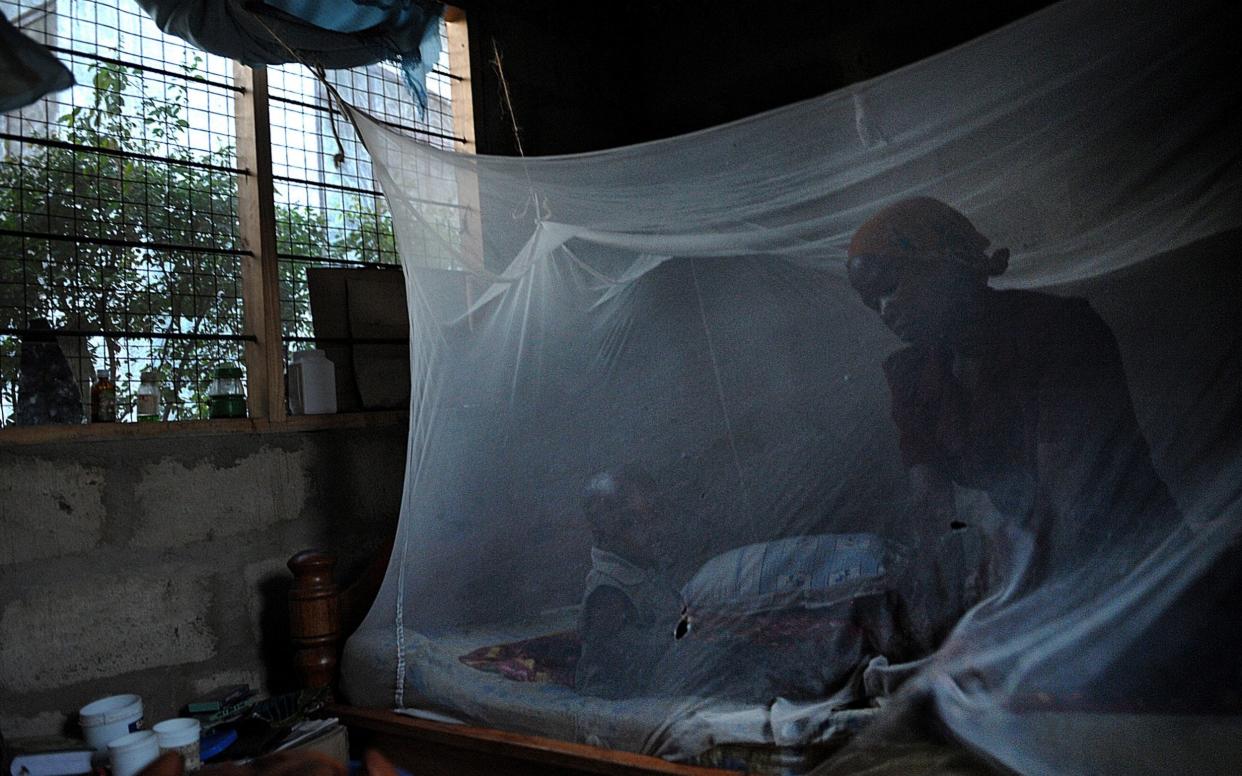Tackling malaria must remain on a 'worst-case scenario' footing, says WHO chief

Efforts to tackle malaria need to remain on a “worst-case scenario” footing this year, according to the World Health Organization, as Covid-19 continues to threaten services.
Last year the pandemic probably led to an extra 40-50,000 malaria deaths, said the director of the WHO’s global malaria programme, Dr Pedro Alonso.
That is far from the most dire predictions of a doubling of the number of malaria deaths to almost 800,000 as the pandemic hit health services and prevention initiatives worldwide. But it is still not a success story, Dr Alonso said.
“The message we are trying to get across is that this is far from over. We cannot say we did great last year, it will be okay this year,” he told the Telegraph. “We have to really get ready again for the worst-case scenario, and be ready for the unexpected.”
However, he said one hope from the pandemic was that vaccines and the vaccine industry had been given such a boost that they would also now be reconsidered as a tool for other diseases, like malaria.
“It’s a time to reboost the use of vaccines,” he said. “Big pharma companies were getting out of the fight [pre-pandemic], because they didn’t see a market. But this is a reminder that infectious diseases will always be with us, and many vaccines are a critical component of our armoury against infectious disease.”
He said new technologies like the mRNA vaccines developed by Pfizer/BioNTech and Moderna could also potentially be used to protect against malaria, which is spread by mosquitoes.
“This is my big source of hope,” Dr Alonso said, and it is desperately needed, because otherwise progress in fighting the disease has effectively stalled in recent years.
Malaria still kills around 400,000 people annually, particularly young children, and mainly in Africa. There have been huge leaps in recent decades: seven million deaths have been averted, and just this week, El Salvador was certified malaria-free. In fact, around half of the countries where malaria is endemic are in sight of eliminating the disease, said Dr Alonso.
But that hides a more complex picture. Population growth means that there are effectively as many people getting infected now as there were 20 years ago and there are more than 200m cases every year.
A number of countries, particularly in Africa, still have huge problems with malaria, and fighting the disease in these places is proving extremely difficult. For example, Nigeria accounts for a quarter of the world’s cases.
“We need new tools for the fight against malaria,” said Dr Alonso. “We accept that we were putting minimal efforts into developing a malaria vaccine. Bed nets are reasonable, the medicines we have are ok, but it is clear that with those tools, we are not going to make any further progress. We need new, disruptive tools, and a vaccine must be priority number one.”
Protect yourself and your family by learning more about Global Health Security

